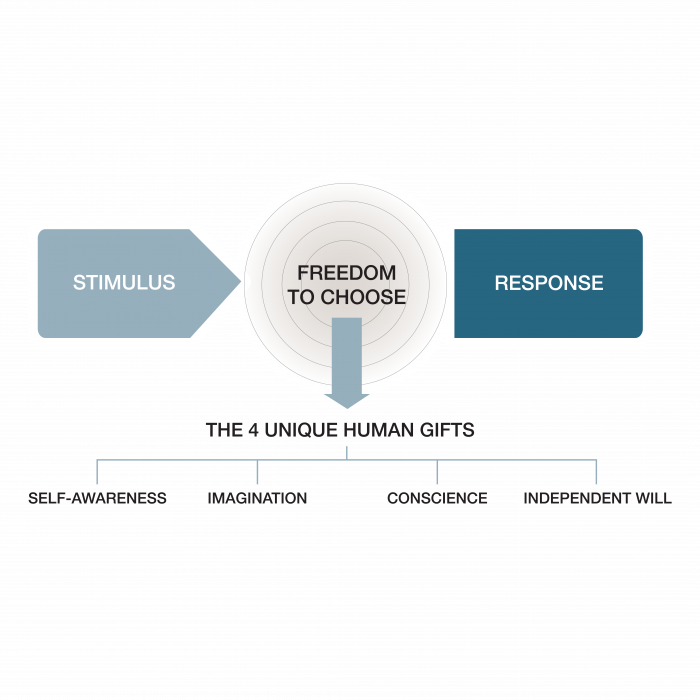The Habit of Personal Responsibility
Habit 1: Be Proactive is about taking responsibility for your life. Proactive people recognize that they are “response-able.” They don’t blame circumstances, conditions, or conditioning for their behavior. They know they can choose their behavior. Reactive people, on the other hand, are often affected by their physical environment. They find external sources to blame for their behavior. If the weather is good, they feel good. If it isn’t, it affects their attitude and performance, and they blame the weather.
All these external forces act as stimuli that we respond to. Between the stimulus and the response is our greatest power—we have the freedom to choose our response. One of the most important things we choose is what we say. Our language is a good indicator of how we see ourselves.
A proactive person uses proactive language—I can, I will, I prefer, etc. A reactive person uses reactive language—I can’t, I have to, if only. Reactive people believe they are not responsible for what they say and do—they have no choice.
Proactive people focus their efforts on their Circle of Influence®. They work on the things they can do something about: health, children, or problems at work.
Reactive people focus their efforts in the Circle of Concern™—things over which they have little or no control: the national debt, terrorism, or the weather. Gaining an awareness of the areas in which we expend our energies is a giant step in becoming proactive.
The Freedom to Choose
Instead of reacting to or worrying about conditions over which they have little or no control, proactive people focus their time and energy on things they can control. The problems, challenges, and opportunities we face fall into two areas—Circle of Concern and Circle of Influence.


“I am not a product of my circumstances. I am a product of my decisions.”
Circle of Influence
Free Guide
Manage Your Time Like A Pro: 7 Tips For Doing What Matters Most
Learn how taking initiative in small, specific ways can help you reach your goals — for your team, your career, and your life.
The 7 Habits of Highly Effective People
Focus and act on what you can control and influence instead of what you can’t.
Define clear measures of success and a plan to achieve them.
Prioritize and achieve your most important goals instead of constantly reacting to urgencies.
Collaborate more effectively by building high-trust relationships.
Influence others by developing a deep understanding of their needs and perspectives.
Develop innovative solutions that leverage diversity and satisfy all key stakeholders.
Increase motivation, energy, and work/life balance by making time for renewing activities.




